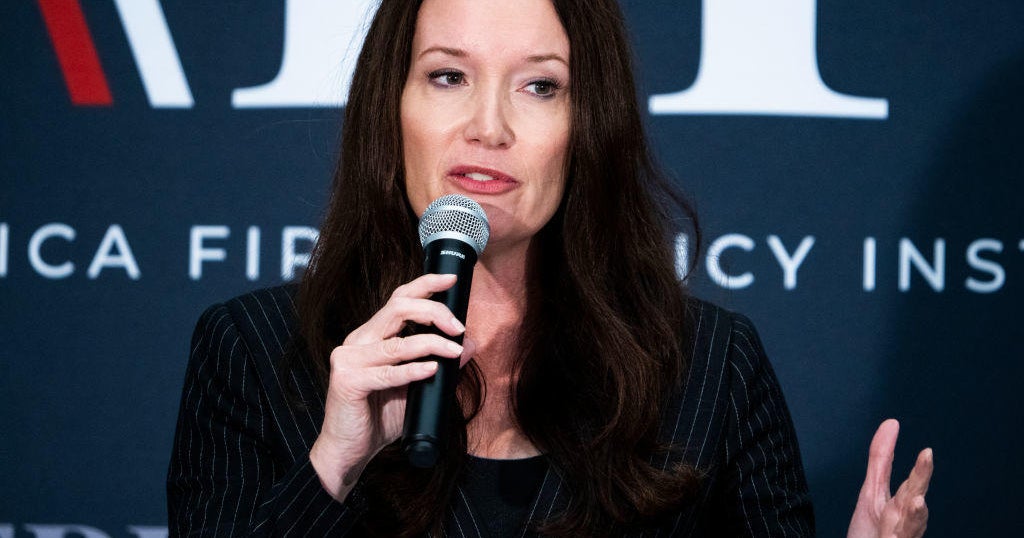Watchdog details psychological trauma among migrant children separated from families
It was the summer of 2018, and facilities that housed unaccompanied migrant children were facing a crisis. As the Trump administration rolled out its "zero tolerance" immigration policy, the facilities were asked to detain and care for children who were younger than those they typically held and were enduring trauma staff members were unprepared to address: forced separation from their parents.
"The little ones don't know how to express what they are feeling, what has happened. Communication is limited and difficult. They need more attention," one program director told investigators with the Department of Health and Human Services' (HHS) Office of Inspector General (OIG). The agency recounted problems caused by the short-lived "zero tolerance" policy in a pair of reports released Wednesday.
The investigators found that the migrant children receive insufficient mental health care, in particular for the severe trauma resulting from separation from their families, often after fleeing extreme violence in their home countries. And as the children in their care swelled, the facilities struggled to hire and train qualified caretakers, often without proper background checks.
The inspector general's office visited 45 facilities operated by the Office for Refugee Resettlement (ORR), a division of HHS, in August and September of 2018. ORR is responsible for the care of unaccompanied migrant children, including care for their mental health. Under the 1997 Flores settlement agreement, which set guidelines for the treatment of migrant treatment, each child in ORR custody must receive one counseling session with a mental health professional per week.
The OIG reports found that children had suffered severe trauma before and upon entering the U.S., because of violence in their home countries and potential separation from their families upon crossing the border. Although the immigration policy separating children from their parents at the border ended in June 2018, several thousand families had already been separated at that point.
"Given the level of intense trauma that children had experienced before coming into HHS care, mental health clinicians expressed concerns that they were not able to address the children's mental health issues," one report said. Because children were housed in ORR facilities for an uncertain amount of time, mental health professionals would focus on the current trauma of adapting to their new life rather than probing into past events.
According to one report, mental health clinicians "expressed concerns about feeling unprepared to handle the level of trauma that some children presented, despite their prior training and experience." Listening to the children describe their experiences also often caused staff emotional distress, according to the report.
Separated children were particularly traumatized by losing their families and the "hectic" reunification process.
"According to program directors and mental health clinicians, separated children exhibited more fear, feelings of abandonment, and post-traumatic stress than did children who were not separated," the report found, saying some children would exhibit acute symptoms of grief, like crying inconsolably. These children also expressed physical symptoms of the mental trauma, including one child who reported that "every heartbeat hurts."
A program director at an ORR facility is quoted in the report describing the situation of a 7- or 8-year-old boy who was separated from his father.
"The child was under the delusion that his father had been killed and believed that he would also be killed. This child ultimately required emergency psychiatric care to address his mental health distress," the program director is quoted as saying.
ORR facility staff also struggled to cope with the influx of younger children, since they were more accustomed to dealing with teenagers. Longer stays in ORR facilities also led to more instances of suicidal ideation and self-harm, according to the inspector general's office said. These struggles were compounded by mental health professionals dealing with large caseloads, treating as many as 25 children at a time.
The overcrowding was compounded by the rush to hire new staff at ORR facilities, investigators wrote. More than half of all facilities that were reviewed hired case managers who did not meet minimum education standards. And more than half allowed employees to start working before processing their criminal and child welfare background checks. Investigators also found HHS had granted waivers to six facilities, allowing them to forego state child welfare checks altogether.
Democratic Representative Rosa DeLauro, who chairs the House subcommittee that oversees HHS appropriations, said in a statement that the two reports were proof "that President Trump's family separation policy was state-sanctioned child abuse."
"The OIG found that separating kids from their families inflicted unspeakable trauma on them. They also noted that this trauma was extended as kids languished in warehouse-like facilities for months on end due to additional Trump administration policies, such as fingerprinting everyone in a sponsor's household," DeLauro said. "Meanwhile, some facilities were allowed to waive background checks and fingerprinting requirements for the workers that were tasked with caring for these children. That is unacceptable."
The OIG offered several recommendations for ORR, including working with experts to identify additional tools to help children, assisting with recruitment efforts to hire more mental health professionals, and increase options for children who require more extensive treatment. The report also recommended minimizing the amount of time children spent in ORR custody.
In response to the reports, the Administration for Children and Families, which oversees ORR, said it concurred with all recommendations, and was taking actions such as creating "a webinar to train facility staff in the unique mental health needs of children in HHS custody."
Several reports have been released in recent months detailing poor conditions at border facilities. In a report released in July, the Department of Homeland Security's internal watchdog found squalid conditions in several detention centers for migrant families and children in Texas, including "serious" overcrowding, minors going without hot meals for days and detainees begging not to be returned to their cells.




